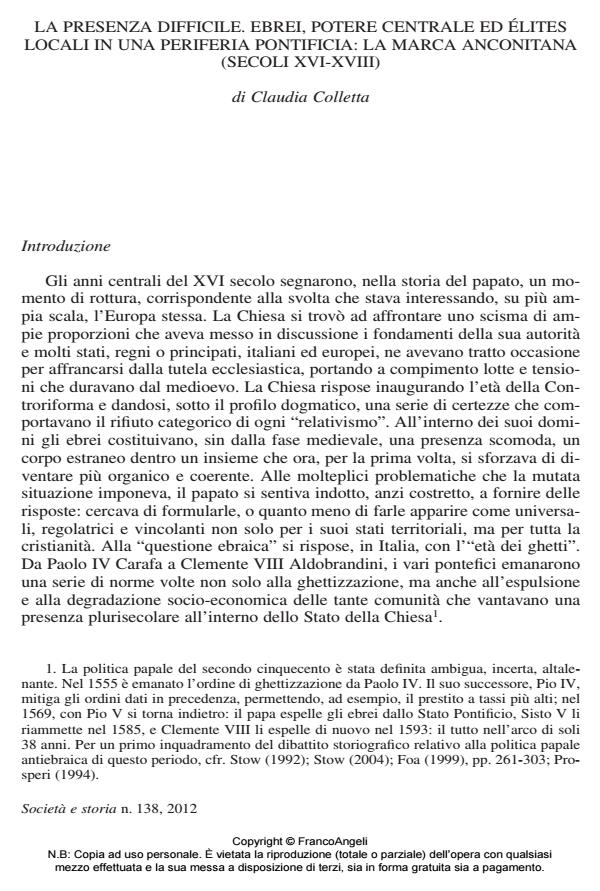The difficult presence. Jews, central power and local elites in a periphery of the Papal State (XVI-XVIII centuries)
Journal title SOCIETÀ E STORIA
Author/s Claudia Colletta
Publishing Year 2012 Issue 2012/138
Language Italian Pages 16 P. 735-750 File size 490 KB
DOI 10.3280/SS2012-138003
DOI is like a bar code for intellectual property: to have more infomation
click here
Below, you can see the article first page
If you want to buy this article in PDF format, you can do it, following the instructions to buy download credits

FrancoAngeli is member of Publishers International Linking Association, Inc (PILA), a not-for-profit association which run the CrossRef service enabling links to and from online scholarly content.
Between the sixteenth and the eighteenth century, the Jews settled in the Papal State were able to keep up their activities in the cities "without ghetto", from which Pope Pius V had expelled them in 1569, and where the central government did not officially permit to recreate a permanent Jewish presence. During these two centuries the Roman Inquisition authorized the Jews to return to their old lands just in order to attend seasonal trade fairs. However, many cities allowed the Jews to remain even after the end of the fairs, just in order to favour the continuity of their trade. Sometimes the Jews evaded Papal prohibitions by taking advantage of the distance from Rome and of the lack of a careful control by the central inquisitors. In different cases, they were able to rebuild a durable presence until the end of the 18th century.
Keywords: Jews, Pope Pius V, Papal State, Roman Inquisition, city "without ghetto", trade fair.
Claudia Colletta, La presenza difficile. Ebrei, potere centrale ed élites locali in una periferia pontificia: la marca anconitana (secoli XVI-XVIII) in "SOCIETÀ E STORIA " 138/2012, pp 735-750, DOI: 10.3280/SS2012-138003